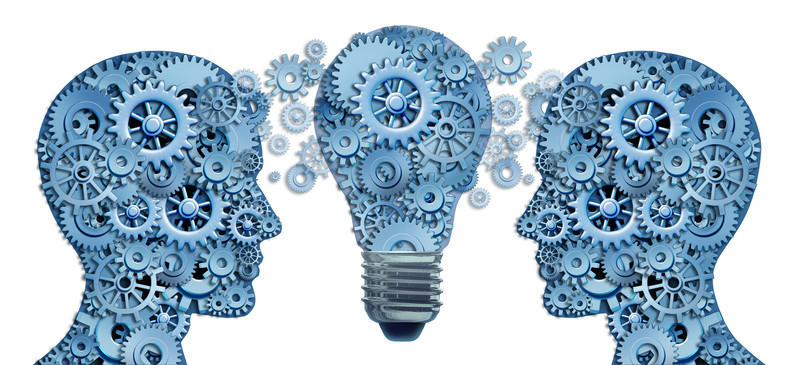The Dynamics of Effectiveness in Mental Health Clinicians

The Dynamics of Effectiveness in Mental Health Clinicians
In the expansive landscape of mental health, the question of whether some clinicians are more adept at facilitating healing than others often arises. The truth is, the effectiveness of mental health clinicians is a nuanced interplay of various factors, each contributing to the unique tapestry of therapeutic success.
Expertise and Specialization:
Like skilled artisans honing their craft, mental health clinicians bring diverse expertise to the table. Some may specialize in specific modalities or populations, excelling in areas where their passion and training intersect. A clinician’s depth of knowledge and specialization can profoundly impact their ability to address specific client needs. For instance, Daniel, Lorie, Adaiah, Ann-Elizabeth, Lydia, Karen S, Karen F, Michelle, Marie, Robert, Steven, Anne Marie, Doreen, Maureen, Donna Sue, Someeka, and Olivia are among the clinicians who have consistently participated in various certificate courses offered by the SWEET Institute, including CBT, DBT, Schema Therapy, Behavioral Modification, and others. While this list represents only a fraction of our dedicated clinicians, the expertise and specialization they bring to their practice are evident. Patients and clients are fortunate to have such skilled professionals guiding them. However, our goal is to ensure that individuals from all walks of life have access to clinicians with this level of expertise and specialization.
Therapeutic Approach:
The therapeutic toolbox is vast, encompassing a spectrum of approaches from Cognitive-Behavioral Therapy to Psychodynamic and beyond. Clinicians who adapt their approach to align with a client’s preferences and needs often foster a more effective therapeutic alliance.
Experience and Seasoning:
Experience serves as a seasoning, enriching a clinician’s understanding and honing their intuitive skills. Veterans in the field may possess a nuanced grasp of complex cases, drawing from a reservoir of encounters to guide their practice. However, novices can also bring fresh perspectives and eagerness to learn.
Cultural Humility:
Cultural humility[1] is a linchpin in effective mental health practice. Clinicians who navigate the diverse tapestry of human experiences with cultural sensitivity and humility create spaces where clients feel seen, heard, and understood.
Client-Clinician Fit:
The magic often lies in the match between the client and clinician. A harmonious fit, characterized by shared values, rapport, and understanding, can significantly enhance the therapeutic process. Clients may find a sense of comfort and resonance that propels the effectiveness of the therapeutic alliance[2].
Flexibility and Adaptability:
The ability to pivot and adapt is an invaluable trait. Clinicians who remain flexible[3], tailoring their approach to meet the evolving needs of clients, demonstrate a commitment to personalized care and a willingness to explore various avenues toward healing.
Empathy and Compassion:
At the heart of therapeutic effectiveness lies the empathic connection between clinician and client. Clinicians who embody genuine compassion[4] create spaces where vulnerability is met with understanding, fostering an environment conducive to growth and healing.
Ongoing Professional Development:
The commitment to continuous learning is a hallmark of effective clinicians. Those who engage in ongoing professional development[5], staying abreast of the latest research, and refining their skills, position themselves to provide cutting-edge and evidence-based care. Seasoned clinicians such as Barbara, Diane, Ines, Jeanne, John, Scott, Monique, Shelvie, Jose, Marsha, Debra, Lynn, Yokasta, Sonia, and Amanda have all witnessed the transformative impact of continuous professional development in their work with patients and clients.
The Art of Collaboration:
Collaboration is an art form in mental health practice. Clinicians who collaborate with clients, recognizing their agency in the therapeutic journey, empower individuals to become active participants in their healing process.[6]
The Alchemy of the Therapeutic Relationship:
The therapeutic relationship itself is an alchemical blend of trust, rapport, and mutual respect. Clinicians who master this delicate dance create spaces where vulnerability is met with validation, and clients feel empowered[7] to embark on their journey of self-discovery and healing.
In essence, the effectiveness of mental health clinicians is as diverse as the individuals seeking their guidance. It’s a multifaceted interplay of skills, empathy, experience, and cultural competence. As clients navigate this mosaic of possibilities, finding the clinician whose unique blend aligns with their needs and aspirations becomes a transformative step toward healing and growth.
[1] Mosher, David K., et al. “Cultural humility: A therapeutic framework for engaging diverse clients.” Practice Innovations 2.4 (2017): 221.
[2] Nissen‐Lie, Helene A., et al. “Patient and therapist perspectives on alliance development: Therapists’ practice experiences as predictors.” Clinical psychology & psychotherapy 22.4 (2015): 317-327.
[3] Owen, Jesse, and Mark J. Hilsenroth. “Treatment adherence: the importance of therapist flexibility in relation to therapy outcomes.” Journal of counseling psychology 61.2 (2014): 280.
[4] Elliott, Robert, et al. “Therapist empathy and client outcome: An updated meta-analysis.” Psychotherapy 55.4 (2018): 399.
[5] Bennett-Levy, James. “Why therapists should walk the talk: The theoretical and empirical case for personal practice in therapist training and professional development.” Journal of behavior therapy and experimental psychiatry 62 (2019): 133-145.
[6] Spencer, Julie, et al. “Developing a collaborative relationship with clients during the initial sessions of psychotherapy.” Psychotherapy 56.1 (2019): 7.
[7] Alonso, Phoebe. “A qualitative investigation of the therapeutic relationship in the facilitation of empowerment in psychological therapy for adults with learning disabilities.” (2019).






